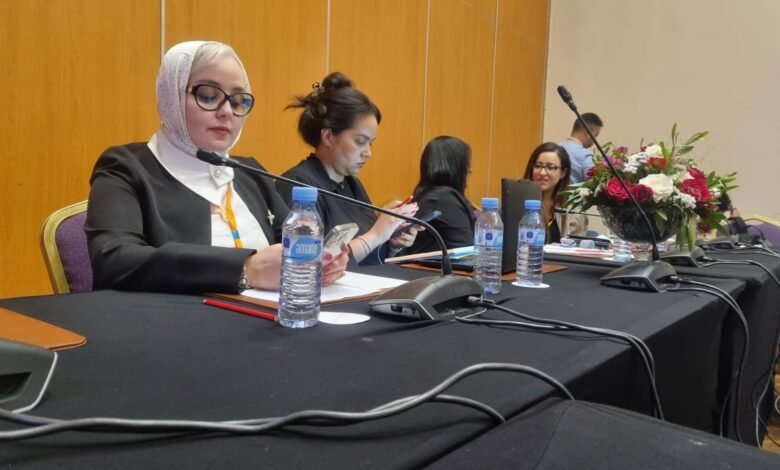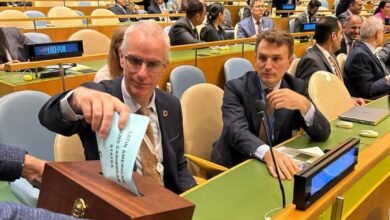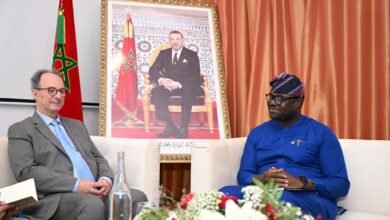Rachida Bouzit El Mernissi Reaffirms Morocco’s Commitment to Gender Equality as a Strategic Priority

At the Arab-African Forum on Business and Human Rights, held on June 24–25, 2025, in Marrakech and organized by the Interministerial Delegation for Human Rights, Rachida Bouzit El Mernissi, President of the Women Entrepreneurs’ Association of Morocco, issued a compelling call to place gender equality at the heart of inclusive economic development. The forum served as a regional platform for dialogue on how business actors can advance rights-based, inclusive development across Africa and the Arab world.
Speaking during a session focused on Gender Equality and Non-Discrimination, Mernissi emphasized that gender equality is not merely a moral obligation or a corporate responsibility gesture. “It is a strategic necessity rooted in the framework of fundamental human rights and the international commitments that Morocco has ratified,” she stated.

She recalled that the Universal Declaration of Human Rights proclaims in Article 1 that “all human beings are born free and equal in dignity and rights,” and cited Morocco’s 1993 ratification of the Convention on the Elimination of All Forms of Discrimination Against Women, which obliges the state to eliminate discrimination in every sphere, including the economy.
Mernissi also pointed to Morocco’s 2011 Constitution, which guarantees equality between men and women under Article 19. To reinforce this principle, she quoted King Mohammed VI’s 2018 speech delivered on Morocco’s National Women’s Day:
“The Moroccan woman, as a partner in development, must benefit from full and complete recognition of her rights and abilities. The 2011 Constitution enshrined equality between men and women, affirming that women have the right to full citizenship and active participation in all fields. Our commitment is to continue working toward women’s empowerment, to strengthen the progress made, eliminate all forms of discrimination, and ensure their full participation in the country’s economic, social, and political life.”
Despite this legal and institutional progress, Mernissi underlined persistent disparities in the professional sphere. “Women, in many sectors, still face limited access to leadership positions, significant wage gaps, and implicit stereotypes and discrimination that hinder their full participation,” she said.
She warned that gender inequality is not only a question of justice but also a missed economic opportunity. “It is urgent that Moroccan companies recognize their role in the practical implementation of these equality principles,” she urged. “Promoting gender equality in the workplace is not just an ethical obligation or moral duty; it is a strategic lever for performance and innovation.”
According to Mernissi, gender-diverse teams are more creative, more resilient in times of crisis, and better positioned to meet the demands of a globalized economy. “Diversity drives innovation, supports better problem-solving, and enables a more accurate understanding of diverse client needs,” she noted.
She laid out a comprehensive roadmap for driving change—beginning with data analysis on gender gaps and access to leadership, followed by the creation of clear and ambitious policies, the implementation of practical measures to promote equality, and finally, a commitment to transparency through regular reporting. “The regular publication of diversity reports, ongoing team awareness, and the celebration of best practices are all tools to deeply embed this culture of equality,” she said.
Mernissi stressed that by aligning equality with corporate strategy, businesses stand to gain in visibility, competitiveness, and talent retention. “By integrating gender and equality into their strategy, Moroccan companies can not only meet their legal obligations, but also derive significant strategic benefits. They can enhance their brand, attract and retain talent, improve economic performance, and contribute to a more balanced and inclusive society.”
She concluded by placing Morocco’s national commitment within the broader global context of the 2030 Agenda. “Implementing these principles also contributes to achieving the United Nations Sustainable Development Goals, particularly SDG 5, which aims to achieve gender equality by 2030.”
Her final message was unequivocal:
“Gender equality is not optional. It is a fundamental right enshrined in human rights law and in Morocco’s international commitments. The leadership of our country, embodied by His Majesty King Mohammed VI, shows that this fight for equality is a national mission.
I invite all of you—economic actors, political leaders, and citizens—to make equality a strategic priority. In doing so, we will build a more just, inclusive Morocco, where every individual, man or woman, can realize their full potential in respect of their rights. Together, let us work toward a future where justice and equality are at the heart of our development.”
Her remarks were part of a broader exchange moderated by Ms. Ranya Kbayli of UN Women Morocco. The session featured contributions from other distinguished speakers, including Mr. Younes Benslimane, Deputy Director of Human Rights at the Ministry of Justice; Mr. Mario Melo, Judge at the Inter-American Court of Human Rights; Ms. Houda Zaouali, Human Rights Officer at the Office of the High Commissioner for Human Rights; and Ms. Katia Sorin, UN Women Representative in Morocco. Together, they offered intersecting perspectives on how institutions and enterprises can drive gender equality across the Arab and African regions.





